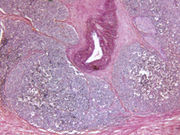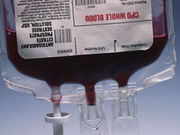Supportive-Care Hospital Visits Linked to Better Outcomes
Tie also seen between visits and increased access to community health services
Similar Sensitivity for CBCL-AP, CRS-R in Diagnosing ADHD
Both scales yield moderate sensitivity for diagnosing ADHD in children and adolescents
High Levels of Exercise May Be Cardiotoxic
Benefits of exercise may not extend to high-level training that induces changes in cardiac morphology
Prostate Cancer Tied to Higher Colorectal Cancer Risk
Risk highest for rectal cancer among prostate cancer patients treated with radiation
IVCF Use Up in Older Patients With Pulmonary Embolism
Use of inferior vena caval filters for pulmonary embolism increased from 1999 through 2010
Many Do Not Share Personal Genetic Testing Results With PCP
Reasons for not sharing include that the results are not important enough, lack of time
Zika Infection Linked to Guillain-Barré Syndrome
Most patients diagnosed with Guillain-Barré during Zika outbreak have Zika virus IgM
Severe Anemia Ups Necrotizing Enterocolitis Risk in VLBW
NEC risk not increased for RBC-transfused very low-birth-weight infants versus nontransfused
Dementia Incidence Higher Than CHD in Very Elderly
Among adults aged ≥80 years, about 64 percent of those who died had prior diagnosis of dementia
USPSTF: Evidence Lacking for Visual Acuity Screening in Seniors
Grade I recommendation for asymptomatic adults aged 65 years or older without vision problems



















